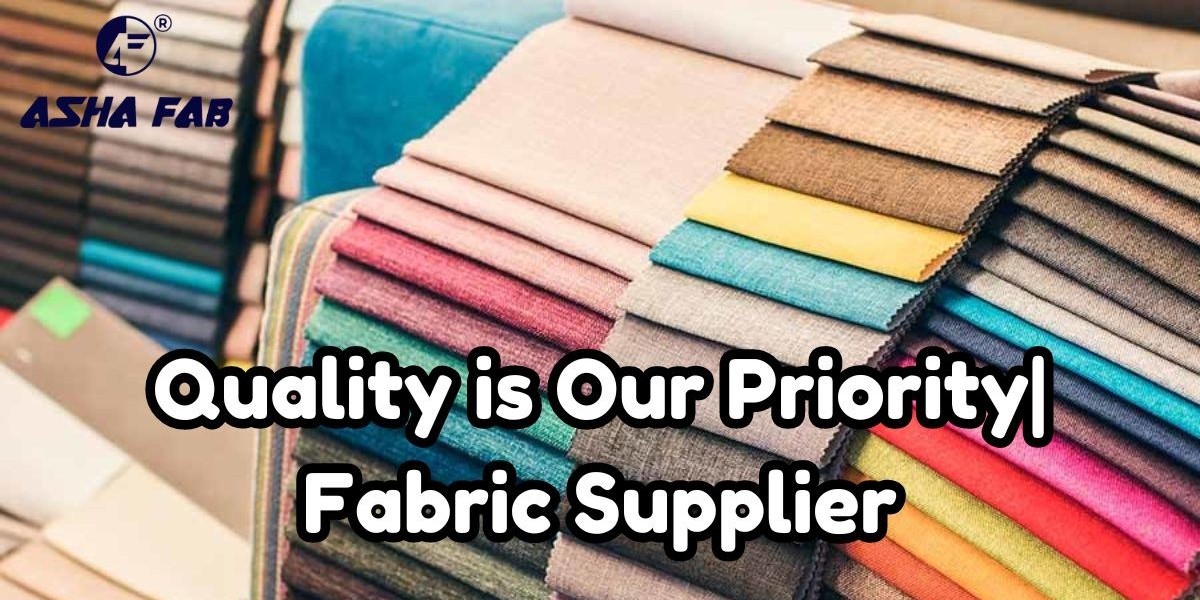When it comes to choosing fabrics, comfort is a top priority. The fabric you wear or use in your home should be soft, breathable, and gentle on the skin. Whether it’s clothing, bed linens, or upholstery, the right fabric can make all the difference in how comfortable you feel. This is why finding a reliable fabric supplier is so important.
The Importance of Choosing the Right Fabric
Fabrics play a crucial role in our daily lives. From the clothes we wear to the sheets we sleep on, fabric is everywhere. But not all fabrics are created equal. Some materials can irritate the skin, cause discomfort, or simply don’t feel good to the touch. That’s why it’s essential to choose fabrics that are known for being gentle on the skin.
Cotton is a prime example of a fabric that is both soft and breathable. It’s perfect for people with sensitive skin because it doesn’t irritate or cause allergies. Cotton also absorbs moisture, keeping you cool and dry. Another excellent fabric is linen, which is light, airy, and naturally soft. Linen is also hypoallergenic, making it a great choice for anyone with skin sensitivities.
When selecting fabrics, consider not just the look and feel, but also how they will affect your skin. Working with a trusted fabric supplier ensures you get high-quality materials that are kind to your skin and comfortable to wear or use.
What Makes a Fabric Gentle on the Skin?
Several factors contribute to a fabric being gentle on the skin. First, the type of fiber used in the fabric plays a significant role. Natural fibers like cotton, linen, and silk are generally softer and more skin-friendly than synthetic fibers. These natural materials are also breathable, which means they allow air to circulate and prevent sweating, reducing the risk of skin irritation.
Second, the weave of the fabric matters. A tight weave can make a fabric feel stiff or rough, while a looser weave tends to be softer and more pliable. For example, cotton with a high thread count is usually softer and smoother than cotton with a lower thread count.
Finally, the finishing process can affect how a fabric feels against the skin. Some fabrics undergo treatments that make them softer, smoother, or more absorbent. It’s essential to choose a fabric supplier who understands these factors and can provide fabrics that are comfortable and gentle on the skin.
How to Choose a Fabric Supplier
Finding a reliable fabric supplier is key to ensuring that you get high-quality materials that are gentle on the skin. Here are some tips to help you choose the right fabric supplier:
Check Their Range of Fabrics: A good fabric supplier should offer a wide variety of fabrics, including natural fibers like cotton, linen, and silk. This ensures you have options that are soft and gentle on the skin.
Look for Quality: Quality is crucial when it comes to fabrics. Make sure your fabric supplier provides high-quality materials that are well-made and durable. Poor-quality fabrics can feel rough or uncomfortable and may not hold up well over time.
Ask About Their Sourcing Practices: Where a fabric comes from can affect its quality and feel. A reputable fabric supplier should be transparent about where their fabrics are sourced and how they are produced.
Consider Their Reputation: A fabric supplier with a good reputation is more likely to provide high-quality fabrics that meet your needs. Look for reviews and testimonials from other customers to see if the supplier is reliable and trustworthy.
Evaluate Their Customer Service: Good customer service is essential when working with a fabric supplier. They should be responsive to your inquiries, provide helpful advice, and be willing to work with you to find the best fabrics for your needs.
Fabrics for Sensitive Skin
If you have sensitive skin, choosing the right fabric is even more important. Some fabrics can cause irritation, redness, or itching, especially if they are made from synthetic materials or have been treated with harsh chemicals. Here are some fabrics that are known for being gentle on sensitive skin:
Cotton: As mentioned earlier, cotton is a natural fiber that is soft, breathable, and hypoallergenic. It’s an excellent choice for people with sensitive skin because it doesn’t cause irritation and feels comfortable against the skin.
Linen: Linen is another natural fiber that is light and breathable. It’s hypoallergenic and has moisture-wicking properties, making it a great option for people with sensitive skin.
Bamboo: Bamboo fabric is becoming increasingly popular for its softness and eco-friendliness. It’s naturally hypoallergenic, antibacterial, and moisture-absorbent, making it ideal for sensitive skin.
Silk: Silk is a luxurious fabric that is incredibly soft and gentle on the skin. It’s also hypoallergenic, which makes it a good choice for people with allergies or sensitive skin.
Modal: Modal is a type of rayon made from beech tree pulp. It’s known for being incredibly soft and smooth, making it a great choice for sensitive skin.
When shopping for fabrics, it’s important to choose materials that are gentle on the skin, especially if you have sensitivities. A good fabric supplier can help you find the right fabrics for your needs.
Sustainable Fabrics and Skin Health
Sustainability is becoming increasingly important in the fabric industry. Many people are now looking for fabrics that are not only gentle on the skin but also eco-friendly. Sustainable fabrics are made from renewable resources and produced in ways that minimize environmental impact. They are often free from harmful chemicals, making them a healthier choice for both the planet and your skin.
Organic Cotton: Organic cotton is grown without the use of pesticides or synthetic fertilizers, making it a more sustainable option. It’s also softer and more breathable than conventional cotton, making it gentler on the skin.
Hemp: Hemp is a durable, eco-friendly fabric that is naturally resistant to bacteria and mold. It’s breathable and moisture-wicking, making it a good choice for skin health.
Tencel: Tencel is a sustainable fabric made from wood pulp. It’s known for being soft, breathable, and biodegradable. It’s also gentle on the skin and has moisture-wicking properties.
Recycled Fabrics: Some fabric suppliers offer materials made from recycled fibers. These fabrics help reduce waste and are often free from harmful chemicals, making them a safe choice for your skin.
Choosing sustainable fabrics not only benefits the environment but also promotes better skin health. By working with a fabric supplier who offers sustainable options, you can find materials that are both gentle on the skin and kind to the planet.
The Future of Fabrics
As technology advances, the fabric industry is constantly evolving. New materials and production methods are being developed to create fabrics that are even more comfortable, durable, and eco-friendly. Here are some trends to watch for in the future of fabrics:
Smart Fabrics: Smart fabrics are textiles that can interact with the environment or respond to changes in temperature, moisture, or light. These fabrics have the potential to improve comfort and skin health by adjusting to your body’s needs.
Eco-Friendly Innovations: As sustainability becomes a greater focus, more fabric suppliers are exploring eco-friendly materials and production methods. This includes using renewable resources, reducing water and energy consumption, and eliminating harmful chemicals.
Advanced Blends: Blending different fibers can create fabrics that offer the best of both worlds. For example, a blend of cotton and bamboo can provide the softness of cotton with the moisture-wicking properties of bamboo. These advanced blends are designed to be both comfortable and gentle on the skin.
Regenerative Fabrics: Regenerative agriculture is a farming practice that focuses on restoring and maintaining soil health. Fabrics made from materials grown using regenerative practices are not only sustainable but also contribute to the health of the planet.
The future of fabrics is bright, with new innovations that promise to enhance comfort, sustainability, and skin health. Working with a forward-thinking fabric supplier ensures you have access to the latest materials and trends.
Conclusion: Finding the Right Fabric Supplier
Choosing the right fabric is essential for comfort and skin health. Whether you’re selecting fabrics for clothing, bedding, or upholstery, it’s important to work with a reliable fabric supplier who can provide high-quality, skin-friendly materials. By considering factors like the type of fiber, weave, and finishing process, you can find fabrics that are gentle on the skin and meet your needs.
As the fabric industry continues to evolve, sustainable and innovative materials are becoming more accessible. A good fabric supplier will keep up with these trends and offer options that are both environmentally friendly and comfortable to wear or use.



